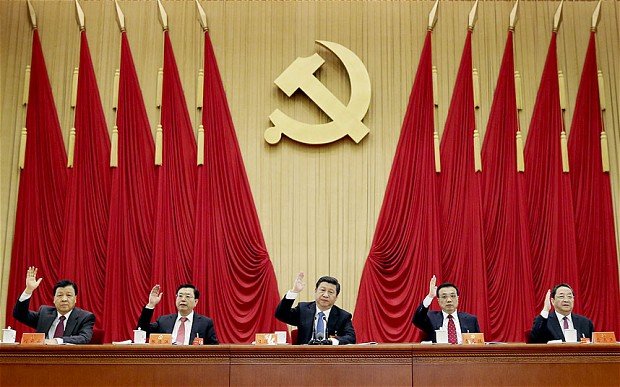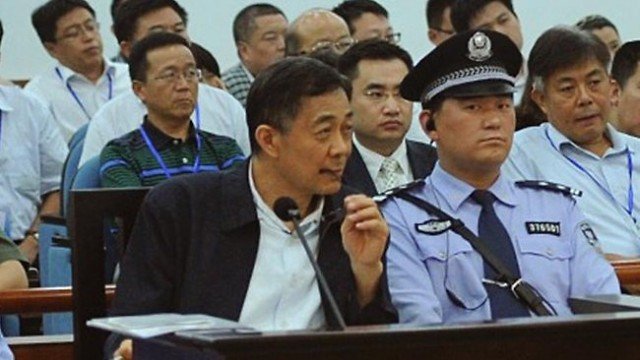China Third Plenum unveils key reforms
China has unveiled a series of reforms aimed at overhauling its economy over the next decade.
In a statement issued after a closed-door summit, the Chinese leaders promised the free market would play a bigger role.
A new committee will oversee internal security to guard against social unrest, and farmers will be given more property rights over their land.
The leaders will now have to persuade officials below them to implement the reforms.
The so-called Third Plenum talks began in Beijing last week, and ended with a brief communique outlining areas that had been agreed on.
Details of what was agreed are still emerging.
The Communist Party leaders said markets would be allowed to play a leading role. State ownership would remain a pillar of the economy.
“The core issue is to straighten out the relationship between government and the market, allowing the market to play a decisive role in allocating resources and improving the government’s role,” the statement said, Reuters news agency reports.
The Communist Party is vowing to carry out deep reforms across the economy and the government to reach a “new stage of development”.
A lengthy television story heading China’s flagship state newscast showed rows of Communist Party officials, including Chairman Xi Jinping, sitting at long tables studying paper documents in front of them.
The report contained a long list of vague party pledges – from a plan to create a modern military to one that encourages foreign investment in China’s coastal cities. Other changes include promises to institute stronger systems to check corruption.
Ahead of the meeting another area expected to be discussed was China’s household registration system.
The meeting was being closely watched after senior Communist Party official Yu Zhengsheng said last month that “unprecedented” economic and social reforms would be discussed at the meeting.
Analysts did not expect any political reforms to be on the agenda.
How successful the reforms turn out to be remains to be seen.
It will take time to assess their impact.
And where economic or social reforms are agreed, local officials and groups with vested interests may be reluctant to implement them, correspondents say.
Third Plenums refer to the third time new leaders of China lead a plenary session of the Central Committee. They generally take place a year after new leaders take office, after they have established their power base.
Previous Third Plenums have had a major impact on China’s development.
At the Third Plenum in 1978, former leader Deng Xiaoping announced the opening-up of China’s economy, spearheading major market-oriented reforms.
In 1993’s Third Plenum, former leader Zhu Rongji announced the “socialist market economy” and dismantled a large part of China’s state-owned sector.
Security was tight in Beijing for the meeting, with tensions higher than usual in the wake of an incident on 28 October in Tiananmen Square and bomb blasts in the north of the country days after.
Five people were killed in what Chinese officials called a “terrorist attack” incited by extremists from the western region of Xinjiang when a car drove through crowds and burst into flames near an entrance to the Forbidden City.
Less than a week later, a series of small blasts killed at least one person outside a provincial office of the ruling Communist Party in Shanxi province.
China’s Third Plenum:
- The Third Plenum was the third meeting of the Xi Jinping-led 18th Central Committee
- Traditionally reforms are expected at the Third Plenum, because new leaders are seen as having had time to consolidate power
- The tradition was begun by Deng Xiaoping in 1978 when he opened China’s doors to the world
- The meeting took place behind closed doors and ran from November 9 to 12 [youtube 78PJ4POCmgE 650]


